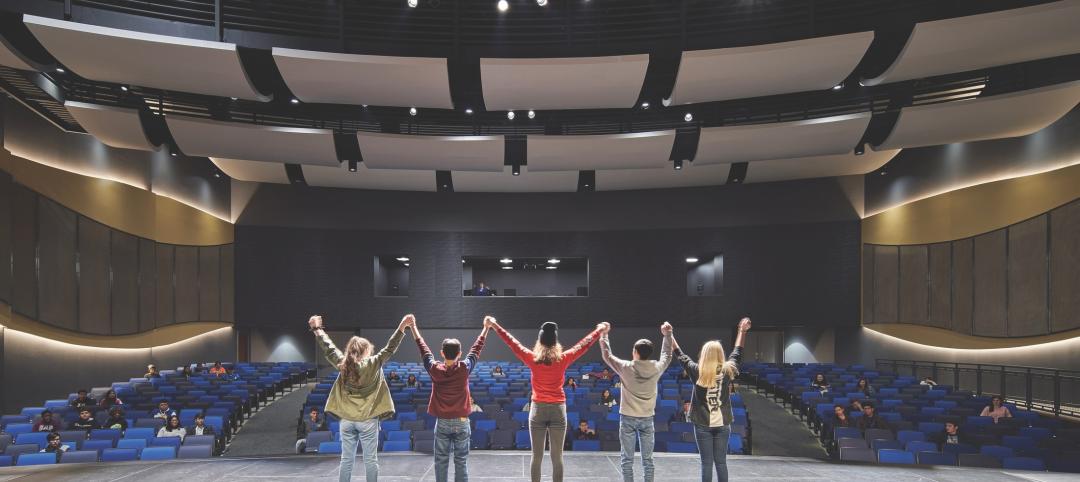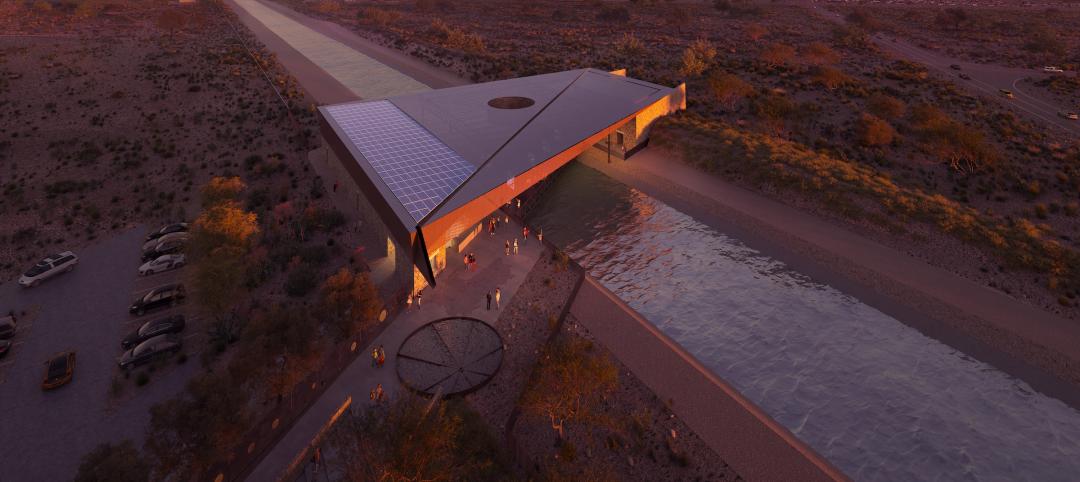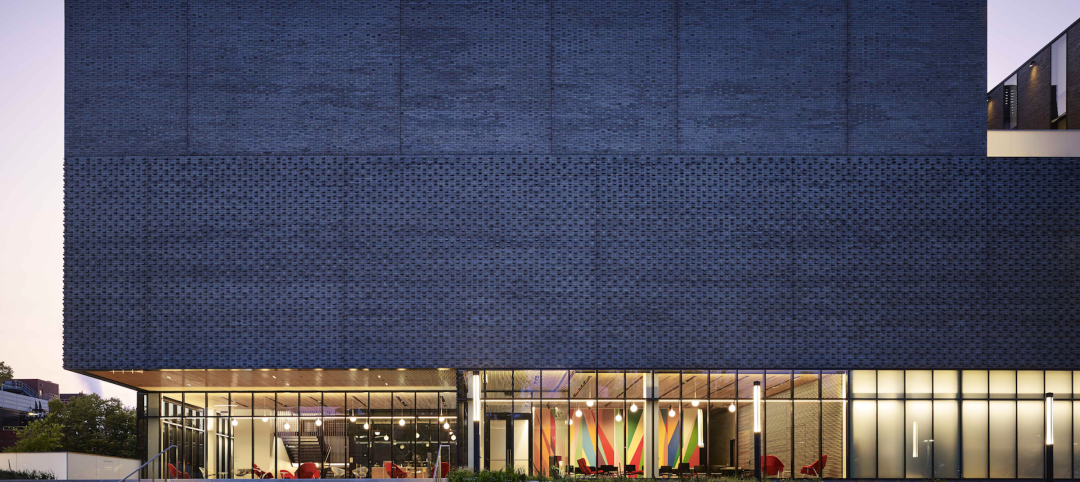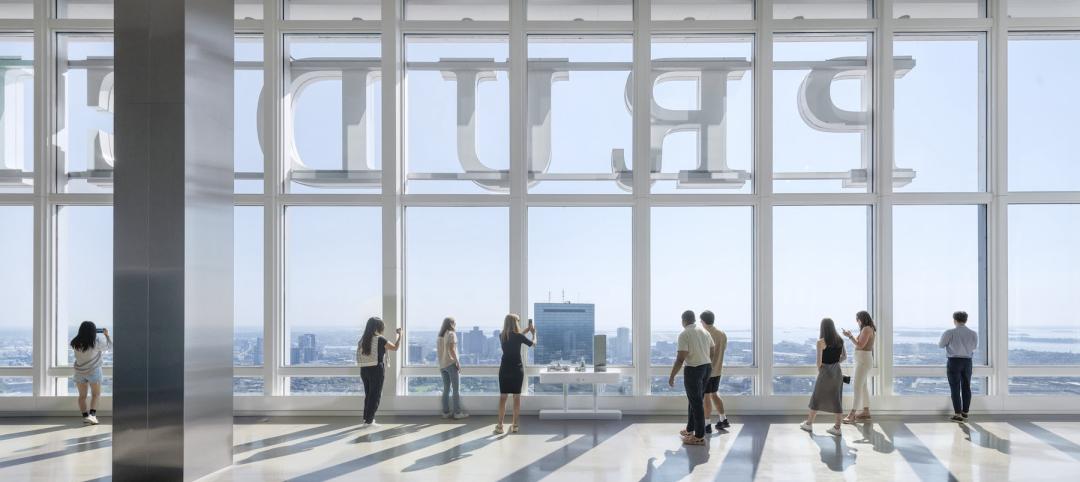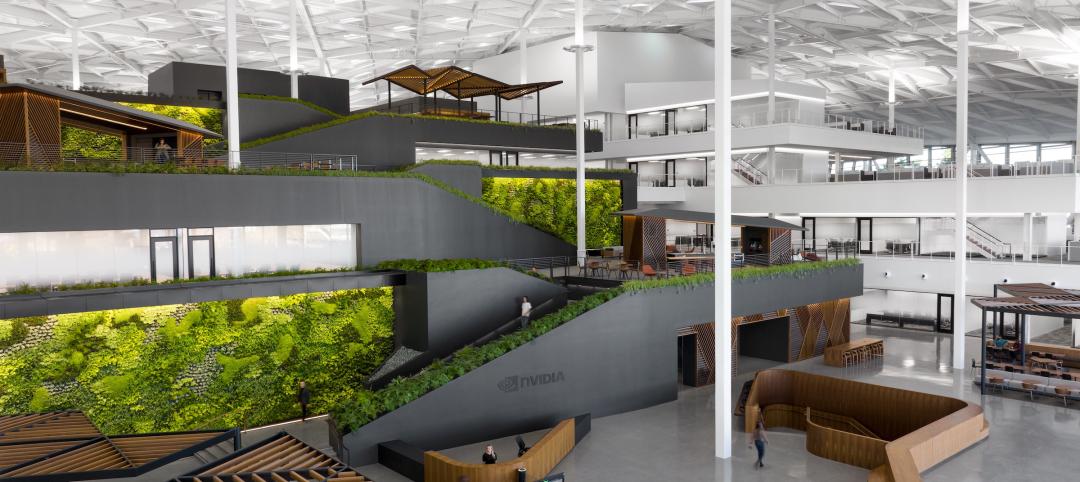The famed Griffith Observatory, located in the heart of the Hollywood hills, receives close to two million visitors every year and has appeared in such films as the classic “Rebel Without a Cause” and the not-so-classic “Charlie's Angels: Full Throttle.” Complete with a solar telescope and a 12-inch refracting telescope, multiple scientific exhibits, and one of the world's largest planetarium domes, the structure remained virtually untouched since its opening in 1935. By 1998, though, it was clear that the structure was well overdue for a full renovation, as well as a major expansion to allow for more exhibit space, offices, and visitor amenities.
Pfeiffer Partners and Levin & Associates Architects, both based in Los Angeles, took on the observatory's rehabilitation and expansion plan in 1998, with input from observatory staff, the city of Los Angeles, and the Friends of the Observatory, a nonprofit support organization. Their first and perhaps most important decision: to make sure any addition did not negatively impact the planetarium's exterior. The Building Team got around that obstacle by going underground and constructing almost 40,000 sf of new space underneath the observatory's front lawn.
“This is a very unique solution to providing much-needed space,” says BD+C Renovation Awards judge Jeff C. Pratt, P.E., principal for KJWW Engineering, Naperville, Ill. Several above-ground elements were added to the original structure, including the Café at the End of the Universe on the western edge. The designers took special care to make the newer buildings blend in visually with the original. “It's a good example of where less is more,” says Pratt.
Armed with a $93 million budget, an expert Building Team was assembled, complete with mural, paint, metal, and exterior envelope conservators. Though a lot of work went into the entire exterior, it was the dome, the structure's most dominant feature, that proved to be the most vexing problem. Made of concrete and covered with copper plates, the original copper material was removed in order to waterproof the concrete underneath. The challenge, though, was setting up a scaffolding system around the dome without actually touching it. The Building Team got around this by placing a structural tower in the planetarium pit and raising it through the dome roof. The tower supported outrigger trusses, from which the scaffolding system was suspended and anchored to the dome's base.
Lead-based paint also had to be removed from the exterior concrete walls. The walls were covered during the paint removal, repaired, and then repainted with a breathable elastomeric coating. The original metal window grilles, granite entry steps, and bronze elements only required minor repairs and cleaning.
Griffith's interior renovations were consistent with the Secretary of the Interior Standards for Rehabilitation. Special attention was given to preserving the Hugo Ballin and A.B. Heinsbergen murals. The central rotunda and the Foucault pendulum were also restored to original condition.
Related Stories
Sponsored | Performing Arts Centers | Jan 17, 2024
Performance-based facilities for performing arts boost the bottom line
A look at design trends for “budget-wise” performing arts facilities reveals ways in which well-planned and well-built facilities help performers and audiences get the most out of the arts. This continuing education course is worth 1.0 AIA learning unit.
Cultural Facilities | Nov 21, 2023
Arizona’s Water Education Center will teach visitors about water conservation and reuse strategies
Phoenix-based architecture firm Jones Studio will design the Water Education Center for Central Arizona Project (CAP)—a 336-mile aqueduct system that delivers Colorado River water to almost 6 million people, more than 80% of the state’s population. The Center will allow the public to explore CAP’s history, operations, and impact on Arizona.
Giants 400 | Nov 6, 2023
Top 65 Cultural Facility Construction Firms for 2023
Turner Construction, Clark Group, Whiting-Turner, Gilbane, and Holder Construction top BD+C's ranking of the nation's largest cultural facilities sector general contractors and construction management (CM) firms for 2023, as reported in the 2023 Giants 400 Report. Note: This ranking includes revenue from all cultural building sectors, including concert venues, art galleries, museums, performing arts centers, and public libraries.
Giants 400 | Nov 6, 2023
Top 60 Cultural Facility Engineering Firms for 2023
KPFF, Arup, Thornton Tomasetti, Tetra Tech, and WSP head BD+C's ranking of the nation's largest cultural facilities sector engineering and engineering architecture (EA) firms for 2023, as reported in the 2023 Giants 400 Report. Note: This ranking includes revenue from all cultural building sectors, including concert venues, art galleries, museums, performing arts centers, and public libraries.
Giants 400 | Nov 6, 2023
Top 110 Cultural Facility Architecture Firms for 2023
Populous, Gensler, HGA, DLR Group, and Quinn Evans top BD+C's ranking of the nation's largest cultural facilities sector architecture and architecture engineering (AE) firms for 2023, as reported in the 2023 Giants 400 Report. Note: This ranking includes revenue from all cultural building sectors, including concert venues, art galleries, museums, performing arts centers, and public libraries.
Cultural Facilities | Sep 24, 2023
Boston’s Prudential Center showcases a new three-floor observatory
A reconfiguration of mechanical and cooling systems made way for “View Boston,” designed by Perkins & Will.
Mass Timber | Sep 1, 2023
Community-driven library project brings CLT to La Conner, Wash.
The project, designed by Seattle-based architecture firm BuildingWork, was conceived with the history and culture of the local Swinomish Indian Tribal Community in mind.
Laboratories | Aug 24, 2023
Net-zero carbon science center breaks ground in Canada
Designed by Diamond Schmitt, the new Atlantic Science Enterprise Centre (ASEC) will provide federal scientists and partners with state-of-the-art space and equipment to collaborate on research opportunities.
Giants 400 | Aug 22, 2023
Top 115 Architecture Engineering Firms for 2023
Stantec, HDR, Page, HOK, and Arcadis North America top the rankings of the nation's largest architecture engineering (AE) firms for nonresidential building and multifamily housing work, as reported in Building Design+Construction's 2023 Giants 400 Report.
Giants 400 | Aug 22, 2023
2023 Giants 400 Report: Ranking the nation's largest architecture, engineering, and construction firms
A record 552 AEC firms submitted data for BD+C's 2023 Giants 400 Report. The final report includes 137 rankings across 25 building sectors and specialty categories.


